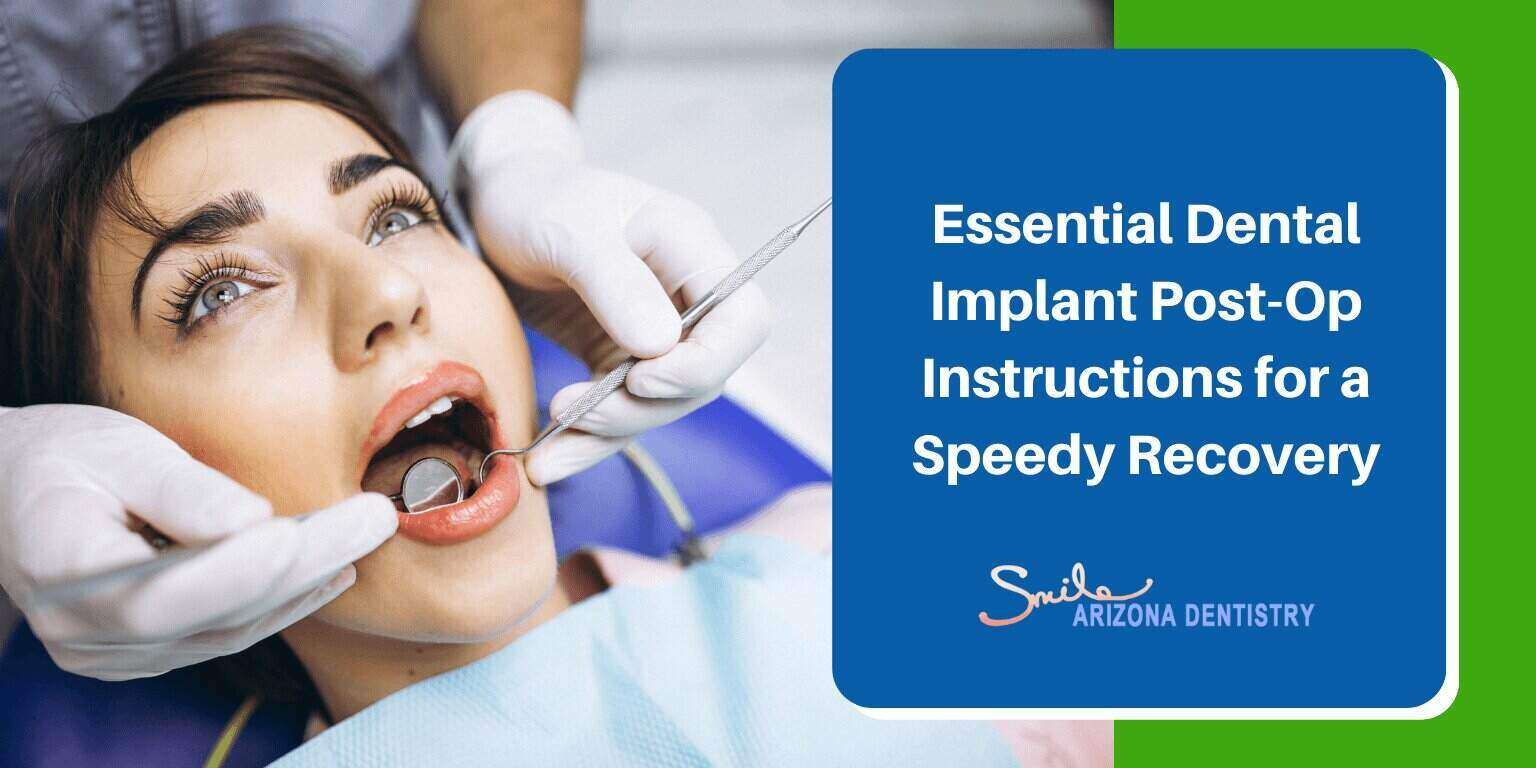Dental implants are a transformative solution for individuals looking to restore their smile and enhance oral functionality. However, the success of your dental implant greatly depends on how diligently you follow post-operative care instructions. Proper care after surgery can significantly speed up recovery, minimize discomfort, and ensure the long-term success of your implants.
Read on to learn about dental implants, including early care after surgery, best post-operative practices, potential side effects, stages of healing, and how to manage pain and discomfort following the procedure.
What Are Dental Implants?
Dental implants are tiny titanium posts placed surgically into the jawbone to function as artificial tooth roots. They create a stable base for fixed or removable replacement teeth crafted to seamlessly blend with your natural teeth. Dental implants offer various benefits, including improved appearance, speech, comfort, oral health, easier eating, and enhanced self-esteem.
Early Care After Surgery
The first few days after your dental implant surgery are crucial for recovery. Here are some early care tips to ensure a smooth healing process:
- Rest and Recover: Allow yourself plenty of rest and avoid strenuous activities.
- Ice Packs: Apply ice packs to the affected area to reduce swelling after dental implants.
- Follow Prescriptions: Take prescribed medications as directed to manage pain and prevent infection.
- Avoid Disturbing the Implant Area: Do not touch or disturb the surgical site with your fingers or tongue.
Best Practices for Post-Operative Care After Dental Implant Surgery
Adhering to best practices post-op dental implant surgery can significantly influence the outcome. Here are some essential dental implant post-op instructions:
- Maintain Oral Hygiene: Avoid brushing the implant site vigorously using a soft-bristled toothbrush.
- Rinse with Salt Water: To clean the area, gently rinse your mouth using a warm salt water solution.
- Avoid Smoking: Smoking can impede healing and increase the risk of implant failure.
- Stay Hydrated: Drink plenty of water and avoid alcoholic beverages.
Side Effects and Experiences You May Feel
It's normal to experience certain side effects post-surgery. These can include:
- Swelling: Swelling after dental implants is common and can last several days.
- Pain: Mild to moderate pain is typical and can be reduced with over-the-counter or prescribed pain relievers.
- Bruising: Some bruising around the implant site is normal.
- Bleeding: Minor bleeding may occur and can be managed by gently biting on gauze.
Stages of Healing After Surgery
The healing process after dental implant surgery occurs in stages:
- Initial Healing: The first few days post-surgery involve clot formation and initial tissue healing.
- Osseointegration: Over the next few months, the implant integrates with the jawbone, a process known as osseointegration.
- Prosthetic Attachment: The final prosthetic tooth or teeth are attached once the implant is securely fused.
Managing Pain and Discomfort Following Dental Implant Surgery
Adequate pain management is essential for a comfortable recovery:
- Medications: Use prescribed painkillers or over-the-counter medications as needed.
- Cold Compresses: Apply cold compresses to reduce dental implant pain and swelling.
- Rest: Ensure you get adequate rest to aid the healing process.
Diet to Be Followed After Surgery
Your diet has a substantial impact on your recovery:
- Soft Foods: Stick to soft foods such as soups, yogurt, and mashed potatoes.
- Avoid Hard and Sticky Foods: These can disturb the implant site.
- Stay Hydrated: Drink ample fluids and refrain from using straws, as the suction can disrupt the blood clot.
Reduce Swelling and Bruising After Dental Implants
To minimize post-op dental implant swelling and bruising:
- Ice Packs: Apply ice packs in 15-minute intervals during the first 24 hours.
- Elevate Your Head: Keep your head elevated while resting.
- Hydrate: Drink water to help flush out your system and reduce swelling after dental implant placement.
Maintaining Oral Hygiene Post Dental Implant Surgery
Maintaining oral hygiene is critical:
- Gentle Brushing: Use a soft-bristled toothbrush to clean your teeth.
- Rinse Regularly: Use an antiseptic mouthwash or warm salt water rinse.
- Floss Carefully: Be gentle when flossing around the implant site.
When to Contact Your Dentist
Knowing when to seek professional assistance is crucial:
- Excessive Bleeding: If bleeding continues beyond 24 hours.
- Severe Pain: Unmanageable pain even after taking medications.
- Signs of Infection: Pus, excessive swelling, or fever.
- Implant Mobility: If the implant feels loose.
Experience Benefits of Dental Implants at Smile Arizona Dentistry
If you have recently undergone or are considering dental implant surgery, following these post-operative instructions closely is vital for a smooth and speedy recovery. At Smile Arizona Dentistry, we support you every step of the way.
Schedule your consultation today to learn more about our comprehensive dental implant services.
FAQs
Q. How long does it take to recover from dental implant surgery?
Recovery duration can vary from a few weeks to several months, based on individual healing rates and adherence to post-op care instructions.
Q. Can I normally eat after dental implant surgery?
It would help if you initially followed a soft diet and gradually reintroduced more complex foods as healing progressed.
Q. Is it normal to experience pain and swelling after dental implant surgery?
Experiencing mild to moderate dental implant pain and swelling is normal and should subside within a few days.
Q. What signs of infection should I watch for after dental implant surgery?
Watch for symptoms like excessive swelling, pus, fever, or severe pain, and contact your dentist immediately if they occur.
Q. How should I clean my teeth after dental implant surgery?
Use a soft-bristled toothbrush and gentle brushing motions, rinse with salt water or an antiseptic mouthwash, and avoid disturbing the implant site.


